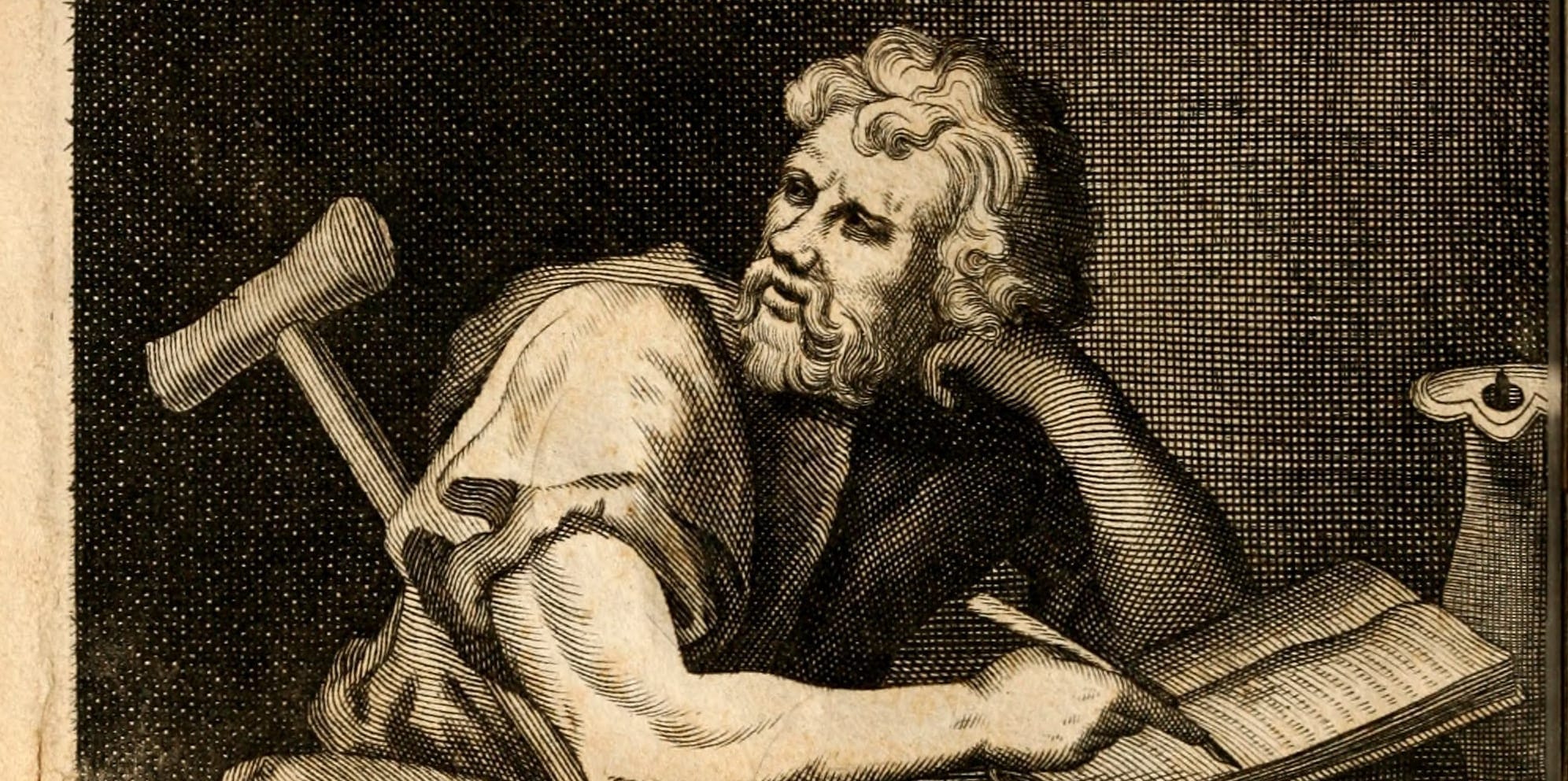Prepare to dive into the captivating world of Epictetus, a legendary Stoic philosopher who lived a life of trials and triumphs. Get ready to discover untold stories and fascinating facts that will shed new light on this extraordinary thinker. From his remarkable ability to overcome adversity to his profound teachings on finding purpose in life, Epictetus’s wisdom continues to inspire and empower modern readers. Join us as we embark on a journey to uncover the untold chapters of his life and explore the timeless knowledge that has guided countless lives through the centuries.
Fascinating Facts about Epictetus
Epictetus, the renowned Greek Stoic philosopher, led a life full of remarkable experiences. His story offers valuable lessons in resilience and wisdom that continue to resonate with people today. Let’s delve into some intriguing facts about Epictetus:
1. From Slave to Sage:
Epictetus’s journey from enslaved person to renowned philosopher is a testament to the power of the human spirit. Born into slavery in Hierapolis (present-day Turkey), his early life was marked by hardship. However, he didn’t let his circumstances define him. He pursued knowledge and wisdom, eventually becoming a leading figure in Stoic philosophy. His story suggests that our past does not dictate our future; we have the power to shape our destinies through our choices and actions.
2. A Legacy Preserved by Arrian:
We owe a debt of gratitude to Arrian, Epictetus’s devoted student, for preserving his teachings for posterity. Arrian meticulously documented Epictetus’s lectures and conversations, compiling them into books like the “Discourses” and the “Enchiridion” (Handbook). These works provide invaluable insights into Epictetus’s philosophy and teaching style, ensuring that his wisdom continues to reach and inspire people centuries later.
3. The Roots of Modern Therapy:
It’s fascinating to note that some of Epictetus’s ideas foreshadowed concepts found in modern therapy, particularly cognitive-behavioral therapy (CBT). Epictetus placed great emphasis on the power of self-control, particularly the control of our thoughts and emotions. He believed that our thoughts shape our emotions and behaviors and that by changing our thinking patterns, we can change our emotional responses. This idea forms a cornerstone of CBT, which focuses on identifying and changing negative thought patterns to improve mental health.
4. Finding Serenity in Choice:
Life is full of unforeseen circumstances, both positive and negative. Epictetus recognized this and offered a pathway to inner peace by encouraging acceptance of the things we cannot change. He argued that instead of wasting energy railing against the inevitable, we should focus on what we can control – our reactions and choices. This shift in perspective, from external circumstances to internal responses, is central to finding serenity and navigating life’s challenges with grace and resilience.
5. A Timeless Guide for the Soul:
One of the most striking aspects of Epictetus’s teachings is their enduring relevance. His insights into human nature, the pursuit of meaning, and the importance of virtue transcend time and culture. Across centuries and continents, people continue to grapple with the same fundamental questions about life, death, and purpose. Epictetus’s teachings offer guidance and solace, reminding us that wisdom and virtue are timeless pursuits that can guide us toward a more fulfilling and meaningful existence.
6. Undaunted Spirit:
Epictetus didn’t merely preach resilience; he embodied it. Despite facing physical challenges and societal prejudices, his spirit remained unbroken. It is believed that he lived with a disability, possibly acquired during his time as an enslaved person. However, he refused to let this define him. Instead, he used his experiences to fuel his philosophical insights, teaching others to find strength and freedom within themselves.
What are some fun facts about Epictetus?
While Epictetus is renowned for his profound philosophical insights, his life wasn’t without its intriguing details. Here are some lesser-known facts about this remarkable thinker:
- Born into Hardship: Born into slavery in Hierapolis, Epictetus’s early life was far from privileged. The exact details of his life as an enslaved person remain unclear, but it likely had a profound impact on his worldview and his emphasis on inner strength.
- A Student of a Legendary Stoic: Epictetus had the privilege of studying under Musonius Rufus, one of the most prominent Stoic philosophers of the time. This suggests that even amidst adversity, Epictetus sought out opportunities for intellectual and personal growth.
- Living with a Disability: Historical accounts suggest that Epictetus lived with a lame leg, possibly from an injury sustained during his time as an enslaved person. The exact cause of his disability is uncertain, but it’s another reminder of the challenges he overcame in his life.
- Exiled for His Beliefs: In 94 AD, Emperor Domitian, wary of philosophers who challenged his authority, banished Epictetus from Rome. This exile, however, led Epictetus to Nicopolis in Greece, where he established his own school, further spreading his teachings.
- Finding a New Home in Nicopolis: Forced to flee Rome, Epictetus didn’t allow this setback to deter him. He established his own philosophy school in Nicopolis, which attracted a devoted following. This move suggests that adversity can sometimes lead to unexpected opportunities.
- The Power of a Dedicated Student: We owe much of what we know about Epictetus to his devoted student Arrian, who diligently recorded his teachings. Arrian’s detailed notes ensured that Epictetus’s ideas were preserved for future generations.
- Living His Philosophy: Epictetus wasn’t just a philosopher; he was a living example of his teachings. He faced life’s challenges with remarkable resilience, embodying the Stoic principles of self-control, courage, and acceptance.
- Happiness from Within: In a world often fixated on external validation, Epictetus’s teachings offer a refreshing perspective. He believed true happiness stemmed from within, from aligning oneself with nature and accepting what we cannot control.
- Influencing an Emperor: Marcus Aurelius, the Roman Emperor renowned for his philosophical inclinations, was deeply influenced by Epictetus’s teachings. This is a testament to the enduring impact of Epictetus’s ideas on individuals from all walks of life.
- A Legacy That Endures: Centuries after his passing, Epictetus’s work continues to resonate with readers worldwide. His insights into human nature, the pursuit of meaning, and the importance of inner strength continue to offer valuable guidance in navigating life’s challenges.
What made Epictetus famous?
Epictetus wasn’t born into fame. In fact, his journey began in the most challenging of circumstances. So how did a former enslaved person become one of the most celebrated philosophers of antiquity?
Epictetus’s rise to fame can be attributed to several key factors. First and foremost was his profound understanding and embodiment of Stoic philosophy. Stoicism, a school of thought that emphasized virtue, reason, and living in accordance with nature, resonated deeply with Epictetus. He didn’t just teach Stoicism; he lived it, demonstrating its principles through his own resilience in the face of adversity.
His compelling teaching style further amplified his influence. Unlike some philosophers who remained in ivory towers, Epictetus engaged with people from all walks of life. He used vivid language, relatable anecdotes, and practical examples to make complex philosophical ideas accessible and relevant to everyday experiences.
The accessibility of his teachings, coupled with his own life story, made him a powerful figure. People were drawn to his authenticity and his ability to convey profound truths in a way that resonated with their own struggles and aspirations. He taught that true freedom lay not in external circumstances but in mastering our own thoughts and reactions. This message, empowering individuals to take control of their inner lives, held immense appeal in a world often characterized by uncertainty and change.
Epictetus’s fame wasn’t limited to his contemporaries. His ideas transcended time, influencing thinkers for centuries to come. Marcus Aurelius, the Roman emperor and philosopher, was a devoted admirer of Epictetus, integrating his teachings into his own life and writings. This speaks volumes about the enduring power and relevance of Epictetus’s work.
Even today, Epictetus’s teachings continue to captivate readers seeking wisdom and guidance on how to live more fulfilling and meaningful lives. His insights on self-control, acceptance, and inner peace provide a roadmap for navigating the complexities of human existence. In a world that often feels chaotic and overwhelming, Epictetus’s work offers a timeless message of hope, resilience, and the transformative power of philosophy.
What was Epictetus’ disability?
While it’s well-documented that Epictetus walked with a limp, the exact nature and cause of his disability remain shrouded in uncertainty. Some historians speculate that he may have been born with a congenital condition, while others suggest his limp resulted from an injury or illness.
One prevalent theory links his disability to the brutality he might have endured during his time as an enslaved person. Some accounts suggest that his leg was deliberately broken by his enslaver, Epaphroditus, a powerful man in Roman society. While we cannot definitively confirm this account, it serves as a stark reminder of the cruelty prevalent during that era.
It’s important to note that regardless of the cause, Epictetus refused to let his physical condition define him. Instead of succumbing to bitterness or despair, he embraced his circumstances and integrated them into his philosophical outlook. His teachings often emphasized the importance of focusing on what we can control—our thoughts, actions, and reactions—rather than dwelling on external factors beyond our influence.
Epictetus’s life serves as a powerful testament to the resilience of the human spirit. He transformed his personal struggles into a source of strength and wisdom, inspiring others to find peace and purpose within themselves, regardless of their circumstances.
Why was Epictetus banished?
In 90 AD, Emperor Domitian, known for his autocratic rule and suspicion of those who challenged his authority, banished philosophers from Rome. Epictetus, a prominent Stoic philosopher, was among those forced to flee.
Domitian’s actions stemmed from a deep distrust of Stoic philosophy, which he perceived as a threat to his power. Stoics believed in speaking truth to power, advocating for justice, and living in accordance with reason and virtue. These principles likely clashed with Domitian’s desire for absolute control and his intolerance of dissent.
Furthermore, some Stoics were known to have supported Domitian’s rivals, further fueling the emperor’s paranoia and animosity towards them. This political climate, where philosophical discourse was seen as potentially subversive, ultimately led to Epictetus’s exile.
While banishment was a harsh punishment, it inadvertently allowed Epictetus’s teachings to flourish elsewhere. He settled in Nicopolis in Epirus (present-day Greece) and established a renowned philosophy school. Ironically, the emperor’s attempt to silence him had the opposite effect, giving Epictetus a new platform to share his ideas with a wider audience.
Epictetus’s banishment underscores the enduring tension between power and philosophy. His story reminds us that challenging those in authority often comes at a cost, but it also highlights the resilience of ideas, which can transcend geographical boundaries and political repression.
How was Epictetus Crippled?
The exact cause of Epictetus’s crippled leg remains a subject of debate among historians. Some believe he was born with a congenital condition that affected his mobility. Others speculate that he sustained an injury sometime during his life, possibly during his time as an enslaved person.
One of the most prevalent theories suggests that his enslaver, Epaphroditus, inflicted the injury. Accounts describe Epaphroditus twisting Epictetus’s leg with such force that it left him permanently crippled. While we can’t definitively confirm this account, it aligns with the brutal realities of slavery in ancient Rome, where physical abuse was commonplace.
Another anecdote, potentially apocryphal, recounts Epictetus remaining remarkably calm while his enslaver twisted his leg, calmly stating, “If you keep twisting it, you will break it.” To which Epaphroditus allegedly replied, “See, I have broken it.” While the veracity of this story is uncertain, it vividly illustrates the Stoic ideal of accepting what we cannot control.
Regardless of the cause, Epictetus refused to let his physical limitations define him. He viewed his disability not as a source of shame or weakness, but as an opportunity to strengthen his resolve and focus on what truly mattered: his mind and his character. This perspective became a cornerstone of his philosophical teachings.
Did Epictetus Believe in an Afterlife?
Unlike some philosophical schools that placed significant emphasis on the afterlife, Epictetus and the Stoics generally focused on living a virtuous life in the present moment. While Epictetus didn’t explicitly deny or confirm the existence of an afterlife, his teachings suggest that he considered it less important than living a life worthy of remembrance here and now.
Epictetus believed that constantly worrying about death was futile. Instead, he urged his followers to focus on what they could control: their thoughts, actions, and reactions to external events. He saw aligning oneself with the rational order of the universe as the path to a fulfilling life.
While Epictetus may not have dwelt on the afterlife, some scholars interpret his belief in a universal rational force (“Logos” or “God”) as hinting at a form of cosmic consciousness that transcends individual existence. This suggests a possible, though not explicitly stated, belief in a continuation of some aspect of the self after death.
However, it’s important to note that Epictetus’s primary focus remained on the here and now. He emphasized living virtuously, making wise choices, and accepting whatever fate may bring. His teachings encourage us to find meaning and purpose in our present actions rather than becoming preoccupied with what may or may not lie beyond this life.
What Language Did Epictetus Speak?
Epictetus, born in Hierapolis, Phrygia (modern-day Turkey), likely spoke Koine Greek, the common language of the Eastern Mediterranean during his time. Koine Greek emerged after the conquests of Alexander the Great, spreading throughout the region and becoming the lingua franca of trade, administration, and intellectual discourse.
It’s important to note that while Koine Greek was the dominant language, Epictetus might have also been familiar with Phrygian, the language of his birthplace. Unfortunately, Phrygian is considered a poorly attested language, with limited surviving texts. Therefore, we can’t definitively say to what extent Phrygian influenced Epictetus’s speech.
The fact that Epictetus’s teachings were recorded and disseminated in Koine Greek is significant. It suggests that his intended audience extended beyond a small, localized group. Using Koine Greek allowed his message to reach a wider audience throughout the Roman Empire and beyond, contributing to the enduring legacy of his philosophical teachings.
Did Epictetus Believe in Zeus?
Addressing the question of Epictetus’s belief in Zeus requires nuance and understanding of Stoic philosophy. While Epictetus did use the name “Zeus,” his understanding differed significantly from the traditional image of the Olympian god found in Greek mythology.
Instead of a personal deity residing on Mount Olympus, Epictetus envisioned “Zeus” as a representation of the divine, rational force that governs the universe. This force, often referred to as “Logos” in Stoicism, represents the principle of order, reason, and destiny that permeates all things.
Epictetus believed that humans, endowed with reason, possess a fragment of this divine logos within themselves. This connection to the divine spark allows us to align our will with the rational order of the universe, finding peace and purpose in the process.
Therefore, Epictetus’s use of “Zeus” shouldn’t be interpreted as a literal belief in the Olympian god but rather as a metaphorical representation of a universal principle. His teachings emphasize understanding and aligning ourselves with this rational force, recognizing that true freedom comes from accepting what we cannot control and focusing on what we can—our own thoughts, actions, and reactions.
What does Epictetus teach us?
Epictetus’s teachings offer a timeless guide to navigating life’s complexities with wisdom, courage, and resilience. Here are some key takeaways from his philosophy:
- Focus on What You Can Control: Epictetus constantly reminded his students that much of our unhappiness stems from trying to control things outside our control – the weather, other people’s opinions, or unforeseen events. He argued that true freedom lies in recognizing this distinction and focusing solely on what we can control – our thoughts, actions, and reactions.
- The Power of Choice: We may not be able to choose everything that happens to us, but we always have the power to choose our response. This power, according to Epictetus, is where our true freedom lies. By choosing our attitude and response to any given situation, we shape our own experiences and ultimately determine our well-being.
- Embrace Adversity: Life is full of challenges, and Epictetus believed that facing them head-on with courage and acceptance was essential for growth. He argued that adversity itself isn’t inherently bad; it’s our resistance to it that creates suffering. By learning to accept what we cannot change, we open ourselves to greater peace and resilience.
- Live Virtuously: For Epictetus, living a virtuous life wasn’t about following rigid rules. It was about striving to embody qualities like wisdom, justice, courage, and temperance in our daily lives. He believed that cultivating these virtues would lead to a more fulfilling and meaningful existence.
- Take Responsibility: Epictetus placed great emphasis on personal responsibility. He believed that blaming others for our circumstances was a form of self-deception. True freedom, he argued, comes from recognizing the power we have to shape our lives through our choices and actions, even when faced with challenging circumstances.
Epictetus’s teachings offer a powerful antidote to the anxieties and uncertainties of modern life. They remind us that true happiness and freedom come not from external possessions or circumstances, but from cultivating inner strength, wisdom, and a deep acceptance of the human condition.
Who is Epictetus for kids?
Imagine building a sandcastle on the beach. You work so hard, but then a wave comes and washes it away! It can feel frustrating, right?
Epictetus, a wise philosopher who lived a long time ago, would say that getting upset about the wave wouldn’t help. The wave is something we can’t control! What we can control is how we react. We can choose to get upset, or we can choose to stay calm, grab our shovels, and start building again!
Epictetus teaches us that our thoughts and feelings are powerful. We can’t always control what happens to us, but we can control how we react. It’s like being the king or queen of our own minds! We get to decide if we want to be happy or sad, calm or angry. It’s not always easy, but it’s a superpower we all have!
Epictetus also reminds us that everyone faces challenges in life. He himself was born into slavery, which means he had to work very hard and wasn’t allowed to make his own choices. But even though his life started out difficult, Epictetus found freedom through learning and thinking. He taught that no matter what happens to us, we can choose to be kind, brave, and wise.
So next time you feel frustrated or upset about something you can’t control, remember Epictetus and the sandcastle. Take a deep breath, remember your superpower, and choose to be strong and happy!
Key Points About Epictetus:
- Rise from Slave to Sage: Overcame adversity to become a renowned philosopher, demonstrating that past circumstances do not dictate future potential.
- Documented by Arrian: Preserved Epictetus’s teachings in written form, ensuring their legacy and accessibility.
- Influence on Modern Therapy: His emphasis on self-control, particularly over thoughts and emotions, laid the foundation for concepts in cognitive-behavioral therapy (CBT).
- Serene Acceptance: Advocated for accepting what cannot be changed and focusing on what can be controlled, providing a path to inner peace.
- Timeless Guide: Epictetus’s teachings continue to resonate across cultures and time periods, offering insights into human nature and the pursuit of meaning.
- Undaunted Spirit: Despite physical and societal challenges, Epictetus exemplified resilience and inner strength, demonstrating the human capacity to overcome obstacles.
Key Lines:
- Epictetus, born into slavery, became one of antiquity’s most influential philosophers, proving that greatness can flourish in any circumstance.
- A champion of personal agency, Epictetus believed that individuals control their thoughts, attitudes, and actions, enabling them to navigate life’s challenges.
- Epictetus’ teachings on reason and rationality laid the foundation for cognitive-behavioral therapy, a prevalent approach in modern psychology.
- His emphasis on self-discipline, self-mastery, and the power of choice continues to resonate with readers today, offering guidance for living a meaningful and fulfilling life.
Condensed & Organized Context:
Epictetus’ Early Life and Education
- Born a slave in Hierapolis, Phrygia (present-day Turkey) around 55 AD
- Received education in Stoic philosophy from Musonius Rufus
Philosophical Teachings
- Emphasized personal agency and self-control
- Believed individuals should focus on what is within their control
- Taught the importance of reason and rationality in making decisions
- Advocated for self-discipline and self-mastery
- Stressed the power of choice in determining one’s response to external events
Influence on Marcus Aurelius and Cognitive-Behavioral Therapy
- Marcus Aurelius, the Roman Emperor, was deeply influenced by Epictetus’ teachings
- Epictetus’ ideas on thoughts, emotions, and behaviors aligned closely with cognitive-behavioral therapy (CBT)
Legacy and Relevance Today
- Epictetus’ teachings continue to inspire individuals seeking guidance on leading a meaningful and fulfilled life
- His focus on personal agency, self-discipline, and the power of choice remains influential in the modern age
Unique Insights:
- Epictetus’s journey from slavery to philosophical greatness could be further explored to emphasize the transformative power of education and the resilience of the human spirit.
- The intersection between Epictetus’s teachings and contemporary mindfulness practices offers potential for unexplored connections.
- An analysis of the historical and cultural context of Epictetus’ philosophy can provide insights into its enduring relevance across time and cultures.
For more inspiring stories of individuals who overcame adversity, check out these captivating articles:
- Karl Schwarzschild was a German mathematician and artillery officer who made important contributions to the theory of relativity. Unbelievable facts about Karl Schwarzschild.
- Askia Muhammad I was the founder of the Songhai Empire, which was one of the largest and most powerful empires in West Africa. Mind blowing facts about Askia Muhammad I.















